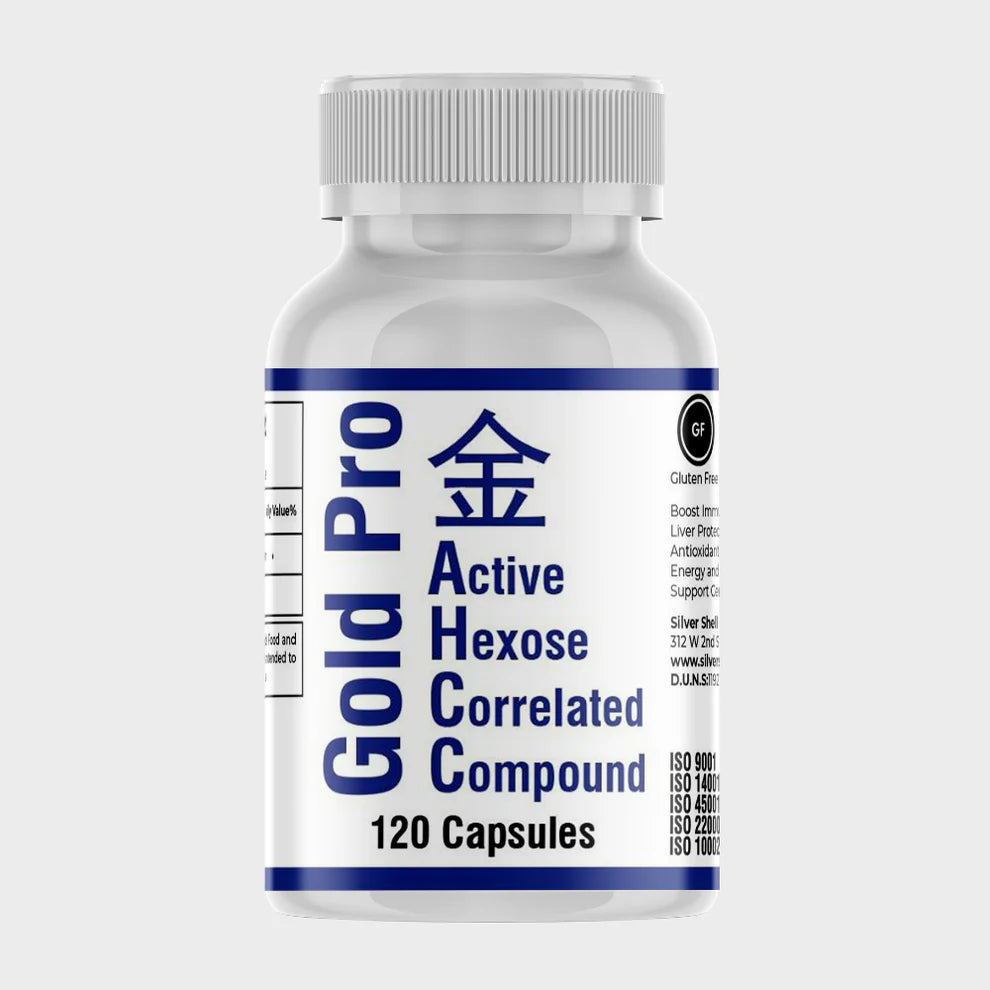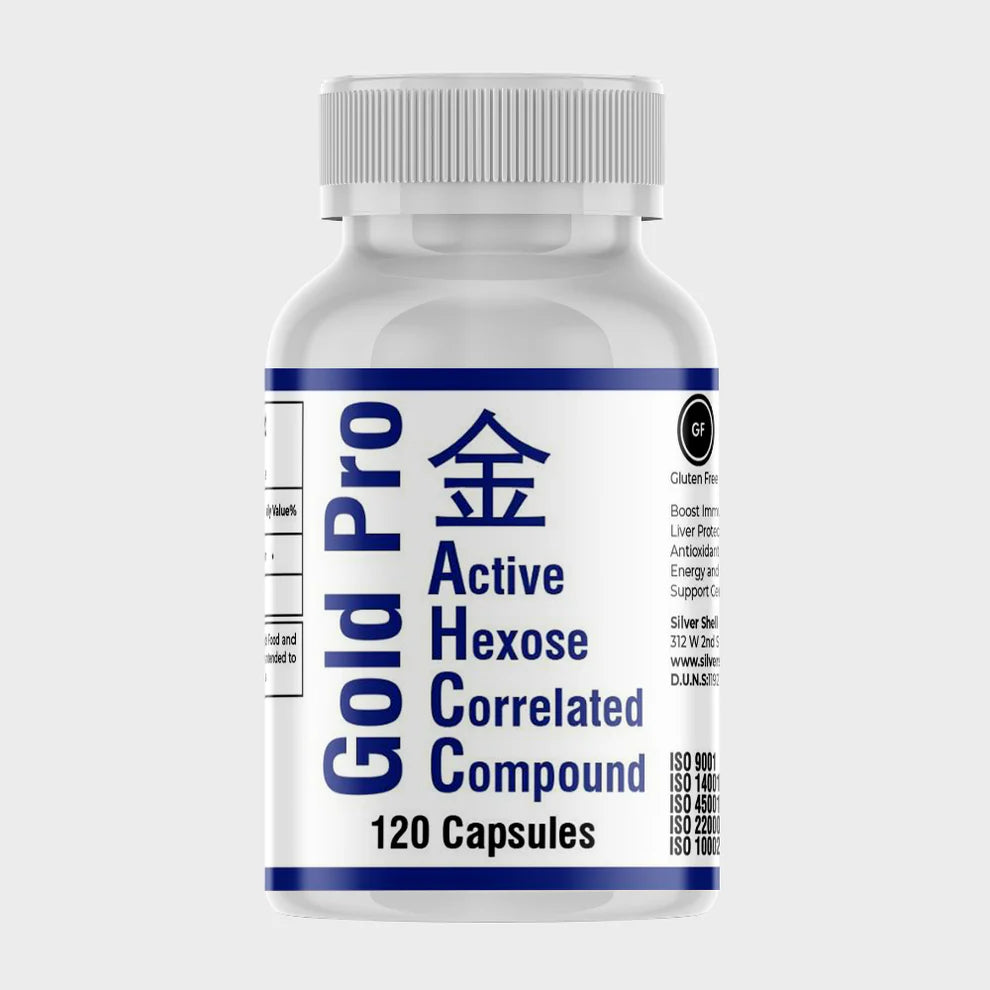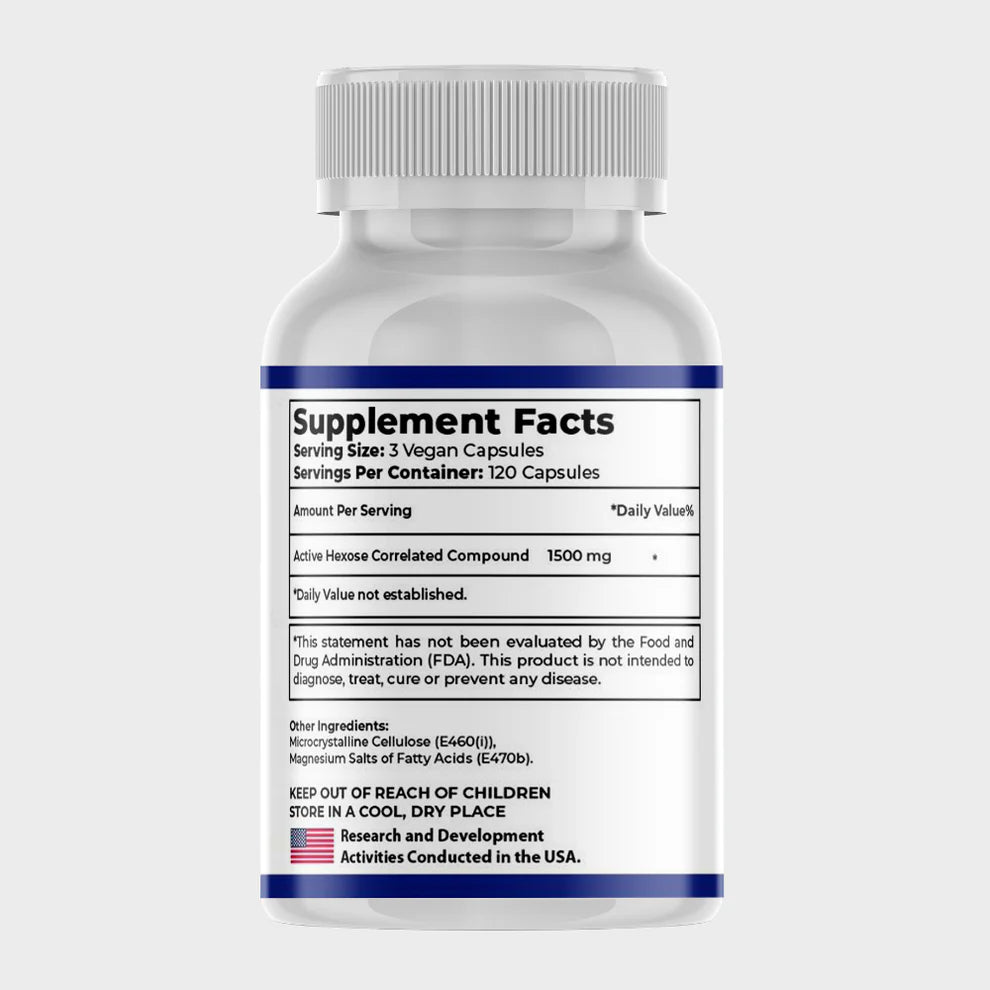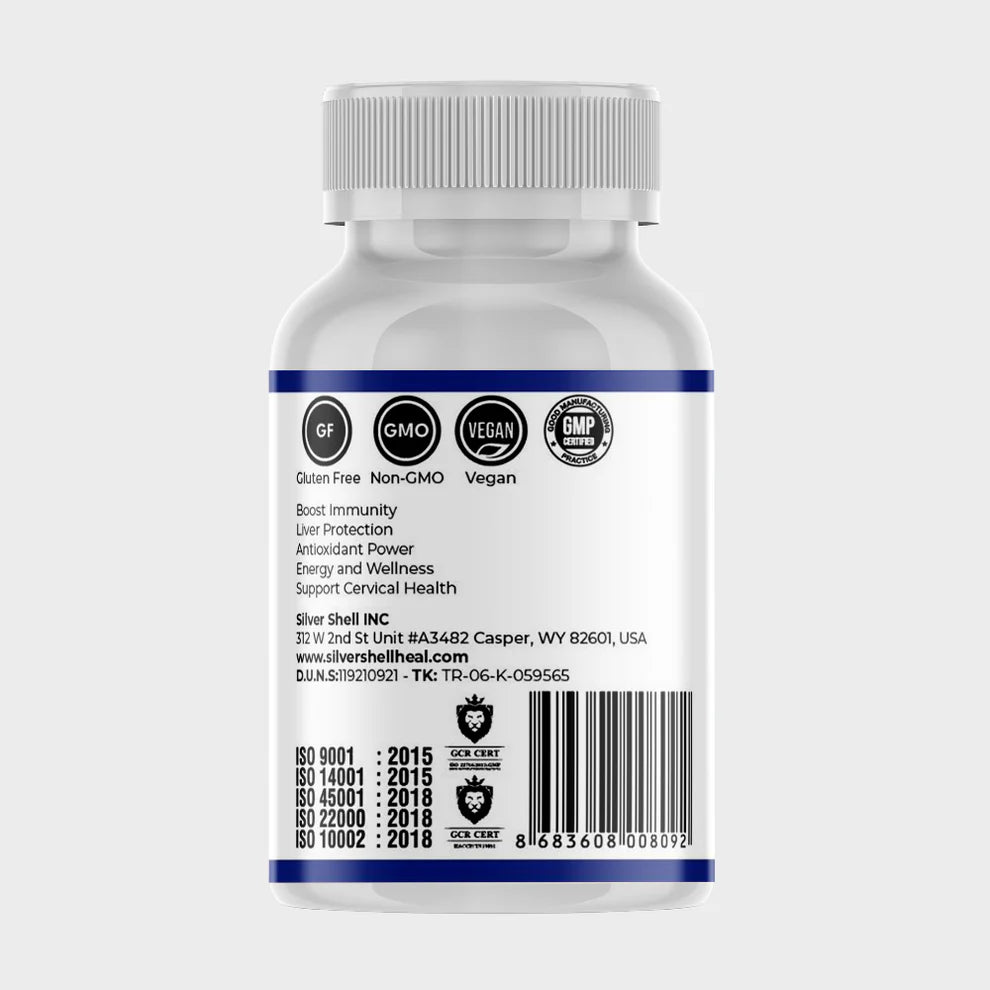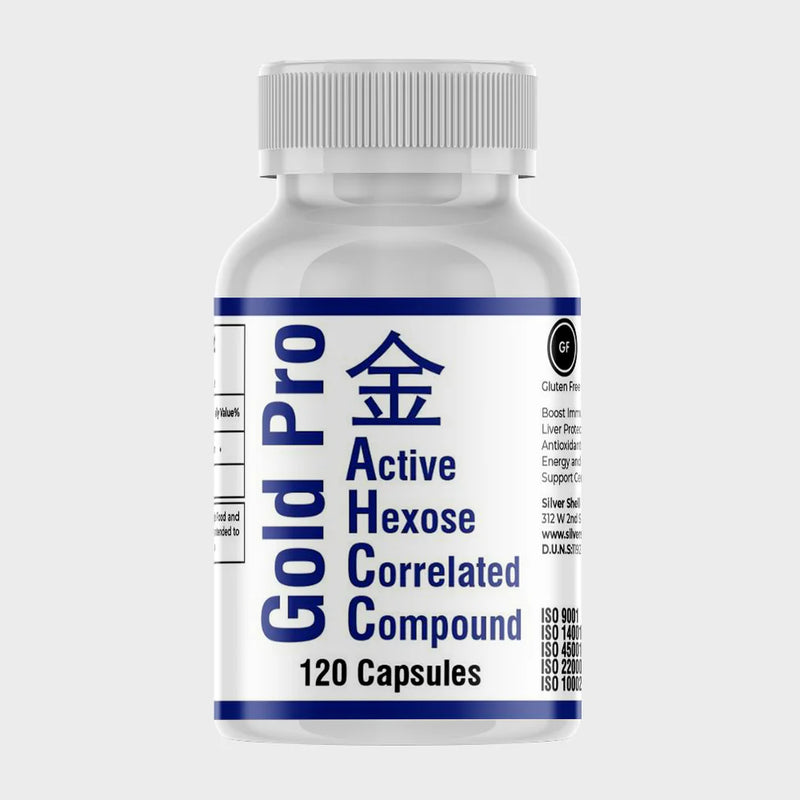| Question | Summary |
|---|---|
| What is AHCC? | AHCC stands for Active Hexose Correlated Compound, a supplement derived from Shiitake mushrooms known for its immune-boosting properties. |
| How does AHCC work in the body? | AHCC stimulates the immune system by increasing the activity of certain types of white blood cells. It also has anti-inflammatory and antioxidant properties. |
| What are the potential health benefits of AHCC? | Potential benefits include enhancing immune response, reducing inflammation, improving liver function, and potentially aiding in cancer treatment. |
| Are there any side effects of taking AHCC? | Side effects are generally mild and may include digestive upset. It's important to consult with a healthcare professional before starting an AHCC regimen. |
| How should I take AHCC and what is the recommended dosage? | AHCC is typically taken orally in capsule or tablet form. The recommended dosage can vary, but a common dosage is 1-3 grams per day. |
| Can AHCC interact with other medications? | AHCC can potentially interact with other medications, particularly immunosuppressive drugs and certain chemotherapy drugs. Always consult with a healthcare provider before starting an AHCC regimen. |
| Is AHCC safe for long-term use? | The safety of long-term use of AHCC is not fully known, but it appears to be safe when used as directed. Always consult with a healthcare professional for long-term use. |
| Can I take AHCC if I'm pregnant or breastfeeding? | The safety of AHCC during pregnancy and breastfeeding is not well-studied, so it's generally recommended to avoid it unless directed by a healthcare professional. |
| Where can I buy AHCC? | AHCC can be purchased from many health food stores, online retailers, and directly from our website. |
| What is the future of AHCC research? | The future of AHCC research looks promising, with ongoing studies exploring its potential benefits in cancer treatment, immune health, inflammation, liver health, and gut health. |
1. What is AHCC and what does it stand for?
AHCC stands for Active Hexose Correlated Compound. It is a nutritional supplement derived from a type of mushroom known as Shiitake. AHCC is known for its immune-boosting properties and is widely used in traditional medicine in Japan and China.
The process of creating AHCC involves the cultivation of Shiitake mushrooms, followed by the extraction of their active compounds. These compounds are then treated and processed to form a powdered supplement, which can be consumed orally.
AHCC is rich in alpha-glucans, a type of complex carbohydrate that is believed to have significant health benefits. These include enhancing the immune system, reducing inflammation, and potentially fighting cancer cells.
While the exact mechanisms of AHCC are still being researched, studies suggest that it works by stimulating the body's natural defenses. This includes promoting the activity of natural killer cells, a type of white blood cell that plays a crucial role in the immune response.
It's important to note that while AHCC has shown promise in laboratory and animal studies, more research is needed to fully understand its effects in humans. As with any supplement, it's recommended to consult with a healthcare professional before starting an AHCC regimen.
2. How does AHCC work in the body?
AHCC works in the body by stimulating the immune system. It does this by increasing the activity of certain types of white blood cells, including natural killer cells and cytokines. These cells play a crucial role in the body's defense against infections and diseases.
The supplement is also believed to have anti-inflammatory properties. Inflammation is a natural response of the body to injury or illness, but chronic inflammation can lead to various health problems. By reducing inflammation, AHCC may help to prevent or alleviate these issues.
AHCC also appears to have antioxidant properties. Antioxidants are substances that help to protect the body's cells from damage caused by free radicals, unstable molecules that can lead to cell damage and various health problems.
In addition to these effects, AHCC may also help to improve liver function and reduce the side effects of chemotherapy. However, more research is needed to confirm these benefits.
3. What are the potential health benefits of AHCC?
The potential health benefits of AHCC are primarily related to its immune-boosting properties. By stimulating the immune system, AHCC may help to prevent or treat various types of infections and diseases.
One of the most promising areas of research involves the use of AHCC in cancer treatment. Some studies suggest that AHCC may help to enhance the effects of chemotherapy and reduce its side effects. However, more research is needed to confirm these findings.
AHCC may also have benefits for liver health. Some studies suggest that it may help to improve liver function and reduce liver damage in people with liver disease. However, more research is needed in this area as well.
Other potential benefits of AHCC include reducing inflammation, improving gut health, and protecting against oxidative stress. However, these effects are still being researched and more evidence is needed to support these claims.
4. Are there any side effects of taking AHCC?
Like any supplement, AHCC may have potential side effects. However, these are generally mild and may include digestive upset, such as nausea or diarrhea. In rare cases, some people may experience an allergic reaction to AHCC.
It's also worth noting that the safety of AHCC in pregnant or breastfeeding women, children, and people with certain health conditions has not been thoroughly studied. Therefore, these individuals should consult with a healthcare professional before taking AHCC.
While AHCC is generally considered safe when used as directed, it's always a good idea to talk to your doctor before starting any new supplement regimen. This is especially important if you have a medical condition or are taking other medications, as AHCC may interact with certain drugs.
5. How should I take AHCC and what is the recommended dosage?
AHCC is typically taken orally in capsule or tablet form. The recommended dosage can vary depending on the specific product and the individual's health status, but a common dosage is 1-3 grams per day.
It's generally recommended to take AHCC on an empty stomach for optimal absorption. However, if you experience digestive upset, you may want to take it with food.
As with any supplement, it's important to follow the manufacturer's instructions and to consult with a healthcare professional if you have any questions or concerns.
Remember, while AHCC has shown promise in laboratory and animal studies, more research is needed to fully understand its effects in humans. Therefore, it's important to use it as part of a balanced diet and healthy lifestyle, rather than relying on it as a standalone treatment for any health condition.
6. Can AHCC interact with other medications?
Yes, AHCC can potentially interact with other medications. For instance, because of its immune-boosting properties, AHCC may interfere with immunosuppressive drugs, which are often used in the treatment of autoimmune diseases and after organ transplants.
AHCC may also interact with certain chemotherapy drugs, potentially enhancing their effects. While this could be beneficial in some cases, it could also increase the risk of side effects.
Therefore, if you are taking any medication, it's important to consult with your healthcare provider before starting an AHCC regimen. They can help you understand the potential risks and benefits, and monitor you for any potential interactions.
7. Is AHCC safe for long-term use?
The safety of long-term use of AHCC is not fully known, as most studies have only looked at its effects over a short period of time. However, based on the available evidence, AHCC appears to be safe when used as directed.
That said, like any supplement, AHCC should be used with caution. It's always a good idea to consult with a healthcare professional before starting any new supplement regimen, especially if you plan to take it for a long period of time.
Remember, while AHCC has shown promise in laboratory and animal studies, more research is needed to fully understand its effects in humans. Therefore, it's important to use it as part of a balanced diet and healthy lifestyle, rather than relying on it as a standalone treatment for any health condition.
8. Can I take AHCC if I'm pregnant or breastfeeding?
The safety of AHCC during pregnancy and breastfeeding is not well-studied. Therefore, it's generally recommended that women who are pregnant or breastfeeding avoid taking AHCC, unless directed by a healthcare professional.
If you are pregnant or breastfeeding and considering taking AHCC, it's important to consult with your healthcare provider. They can help you weigh the potential risks and benefits, and make an informed decision based on your individual health status and needs.
9. Where can I buy AHCC?
AHCC is available in many health food stores and online retailers. One reliable source to purchase AHCC is through our website. We offer a high-quality AHCC product in the form of 500 mg capsules. You can view and order the product directly from this link.
When choosing an AHCC product, it's important to look for one that is high-quality and comes from a reputable manufacturer. Our AHCC product meets these criteria, ensuring you receive a supplement that is safe and effective.
As with any supplement, it's a good idea to consult with a healthcare professional before starting an AHCC regimen. They can help you choose a product that's right for you, and guide you on the appropriate dosage and usage.
10. What is the future of AHCC research?
The future of AHCC research looks promising. While the supplement has been studied for several decades, there is still much to learn about its potential health benefits and mechanisms of action.
One of the most exciting areas of research involves the use of AHCC in cancer treatment. Some studies suggest that AHCC may help to enhance the effects of chemotherapy and reduce its side effects. However, more research is needed to confirm these findings.
Other areas of potential research include the effects of AHCC on immune health, inflammation, liver health, and gut health. As our understanding of these areas continues to grow, so too will our understanding of the potential benefits of AHCC.
In the meantime, it's important to remember that while AHCC has shown promise in laboratory and animal studies, more research is needed to fully understand its effects in humans. Therefore, it's important to use it as part of a balanced diet and healthy lifestyle, rather than relying on it as a standalone treatment for any health condition.
11. Can AHCC help with autoimmune diseases?
Autoimmune diseases are conditions where the immune system mistakenly attacks the body's own cells. Given AHCC's immune-modulating properties, it has been suggested that it could potentially be beneficial for people with autoimmune conditions.
AHCC is believed to enhance the activity of natural killer cells and cytokines, which play a crucial role in the immune response. By doing so, it could potentially help to regulate the immune system and prevent it from attacking the body's own cells.
However, it's important to note that the research in this area is still in its early stages. While some studies have shown promising results, more research is needed to fully understand the potential benefits of AHCC for autoimmune diseases.
As with any supplement, it's important to consult with a healthcare professional before starting an AHCC regimen, especially if you have an autoimmune disease. They can help you understand the potential risks and benefits, and guide you on the appropriate dosage and usage.
12. Can AHCC help with viral infections?
AHCC's immune-boosting properties may potentially make it beneficial for fighting off viral infections. By enhancing the activity of natural killer cells and cytokines, AHCC could potentially help to strengthen the body's natural defenses against viruses.
Some preliminary studies have suggested that AHCC may be beneficial in the treatment of certain viral infections, including the influenza virus and certain strains of the human papillomavirus (HPV). However, more research is needed to confirm these findings and to understand the potential benefits of AHCC for other types of viral infections.
As with any supplement, it's important to consult with a healthcare professional before starting an AHCC regimen, especially if you have a viral infection. They can help you understand the potential risks and benefits, and guide you on the appropriate dosage and usage.
13. Can AHCC help with bacterial infections?
AHCC's immune-boosting properties may potentially make it beneficial for fighting off bacterial infections. By enhancing the activity of natural killer cells and cytokines, AHCC could potentially help to strengthen the body's natural defenses against bacteria.
However, it's important to note that the research in this area is still in its early stages. While some studies have shown promising results, more research is needed to fully understand the potential benefits of AHCC for bacterial infections.
As with any supplement, it's important to consult with a healthcare professional before starting an AHCC regimen, especially if you have a bacterial infection. They can help you understand the potential risks and benefits, and guide you on the appropriate dosage and usage.
14. Can AHCC help with fungal infections?
Given AHCC's origins from a type of mushroom, it's interesting to consider its potential benefits for fungal infections. However, the research in this area is still in its early stages, and more studies are needed to fully understand the potential benefits of AHCC for fungal infections.
As with any supplement, it's important to consult with a healthcare professional before starting an AHCC regimen, especially if you have a fungal infection. They can help you understand the potential risks and benefits, and guide you on the appropriate dosage and usage.
15. Can AHCC help with allergies?
Allergies are caused by an overactive immune response to harmless substances like pollen or pet dander. Given AHCC's immune-modulating properties, it has been suggested that it could potentially be beneficial for people with allergies.
By enhancing the activity of natural killer cells and cytokines, AHCC could potentially help to regulate the immune system and prevent it from overreacting to allergens. However, more research is needed to fully understand the potential benefits of AHCC for allergies.
As with any supplement, it's important to consult with a healthcare professional before starting an AHCC regimen, especially if you have allergies. They can help you understand the potential risks and benefits, and guide you on the appropriate dosage and usage.
Frequently Asked Questions
1. What is AHCC?
AHCC stands for Active Hexose Correlated Compound, a supplement derived from Shiitake mushrooms known for its immune-boosting properties.
2. How does AHCC work in the body?
AHCC stimulates the immune system by increasing the activity of certain types of white blood cells. It also has anti-inflammatory and antioxidant properties.
3. What are the potential health benefits of AHCC?
Potential benefits include enhancing immune response, reducing inflammation, improving liver function, and potentially aiding in cancer treatment.
4. Are there any side effects of taking AHCC?
Side effects are generally mild and may include digestive upset. It's important to consult with a healthcare professional before starting an AHCC regimen.
5. How should I take AHCC and what is the recommended dosage?
AHCC is typically taken orally in capsule or tablet form. The recommended dosage can vary, but a common dosage is 1-3 grams per day.
6. Can AHCC interact with other medications?
AHCC can potentially interact with other medications, particularly immunosuppressive drugs and certain chemotherapy drugs. Always consult with a healthcare provider before starting an AHCC regimen.


